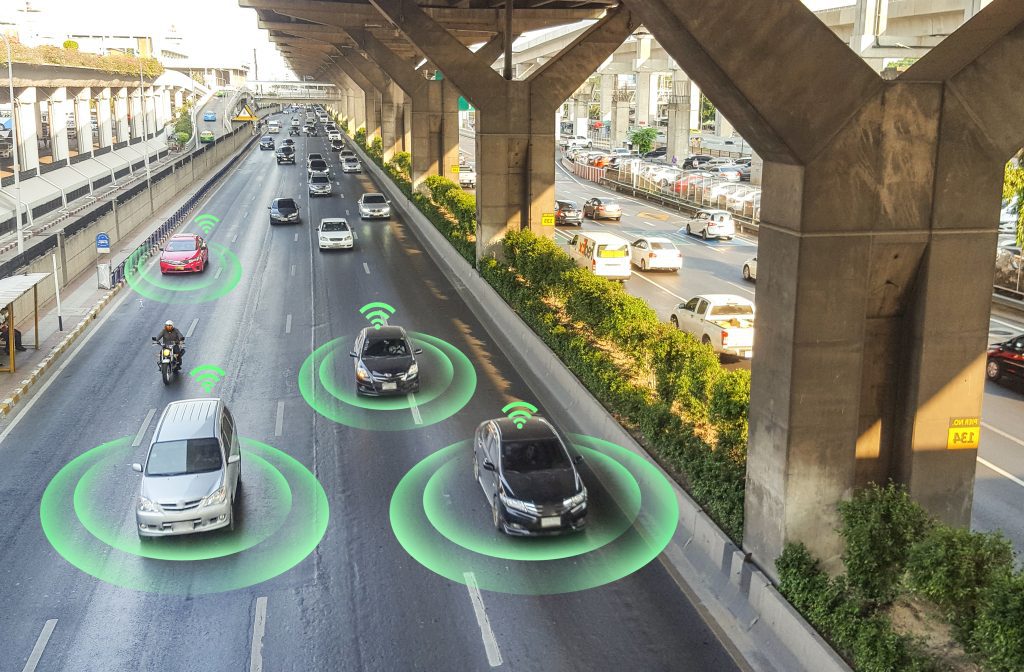In 2022, the UK Government announced that self-driving cars could be on UK roads ‘within the next year’. But now well into 2023, many drivers are wondering whether driverless cars are really the future? The guide below looks at how self-driving cars work and when they are expected to be on UK roads.
What is an autonomous vehicle?
Autonomous vehicles, self-driving cars or driverless cars are all ways to describe a vehicle that is capable of driving itself without being controlled by a human. Through a combination of sensors, cameras and artificial intelligence, the vehicle is able to perform as if a human was behind the wheel but without the need for human interaction. To be fully autonomous, the vehicle will need to be able to reach a predetermined destination with any assistance from the driver.

How do self-driving cars work?
As mentioned above, driverless cars work by combining sensors, cameras and artificial intelligence (AI). They are equipped with a GPS system so they know where to go and the cameras and sensors assess the environment around them. Driverless cars can detect other vehicles, traffic lights, pedestrians, cyclists and road markings and can make decisions accordingly. Driverless cars have the power to react to situations by braking, accelerating or steering, with no human assistance.
Rather than following pre-programmed instructions, driverless cars instead use AI to learn from experience and adapt to situations. Just like driving as a human, each and every journey will be different and unexpected things can happen on the road all the time so it would be pointless to expect an autonomous vehicle to follow a set of guidelines. Instead, AI can be used to improve traffic flow and prevent accidents by communicating with other driverless cars on the road.
Can you buy a driverless car now in the UK?

At the time of writing (May 2023), it is not possible to buy a self-driving car in the UK yet. There are no models that are yet equipped with fully autonomous technology available in the UK but there are a few manufacturers who are testing or already have features in place. Tesla cars have a number of Autopilot features which are getting close to self-driving but is not yet fully autonomous. The Autopilot mode allows the car to steer accelerate and brake automatically within its lane but driver supervision is still required.
Are driverless cars the future?
When it comes to deciding whether driverless cars are worth it there are both benefits and disadvantages to consider.
Benefits of driverless cars:
- Fewer accidents and deaths due to the eradication of human error.
- More independence for older people and those with disabilities.
- More efficient driving.
- No dangerous driving such as tailgating or overtaking.
- Reduction in traffic.
- Smoother driving experience.
Drawbacks of driverless cars:
- Early research highlights that driverless cars would be much more expensive to buy.
- Lack of trust and putting your life in the hands of technology.
- Technology on this level can be hacked.
- Moral dilemmas such as who should the self-driving car protect in the event of an accident, the driver or other road user/pedestrian?
When will self-driving cars be available in the UK?
The current plan in place by the UK Government is that self-driving vehicles will be rolled out on UK roads by 2025. A new £100 million policy has announced new laws to facilitate the safe arrival of autonomous vehicles. Not only could the new laws affect drivers but autonomous vehicles could also be used for public transport and deliveries too. There is little to be known yet about the roadmap to a driverless future, however, we do know that more funding will be plugged into testing driverless cars in the UK. There are still concerns about how driverless cars could perform in adverse weather conditions and how they react to other road users. The UK will also need to decide who takes responsibility for self-driving cars if they were to be involved in an accident or incident. Watch this space for more information.

